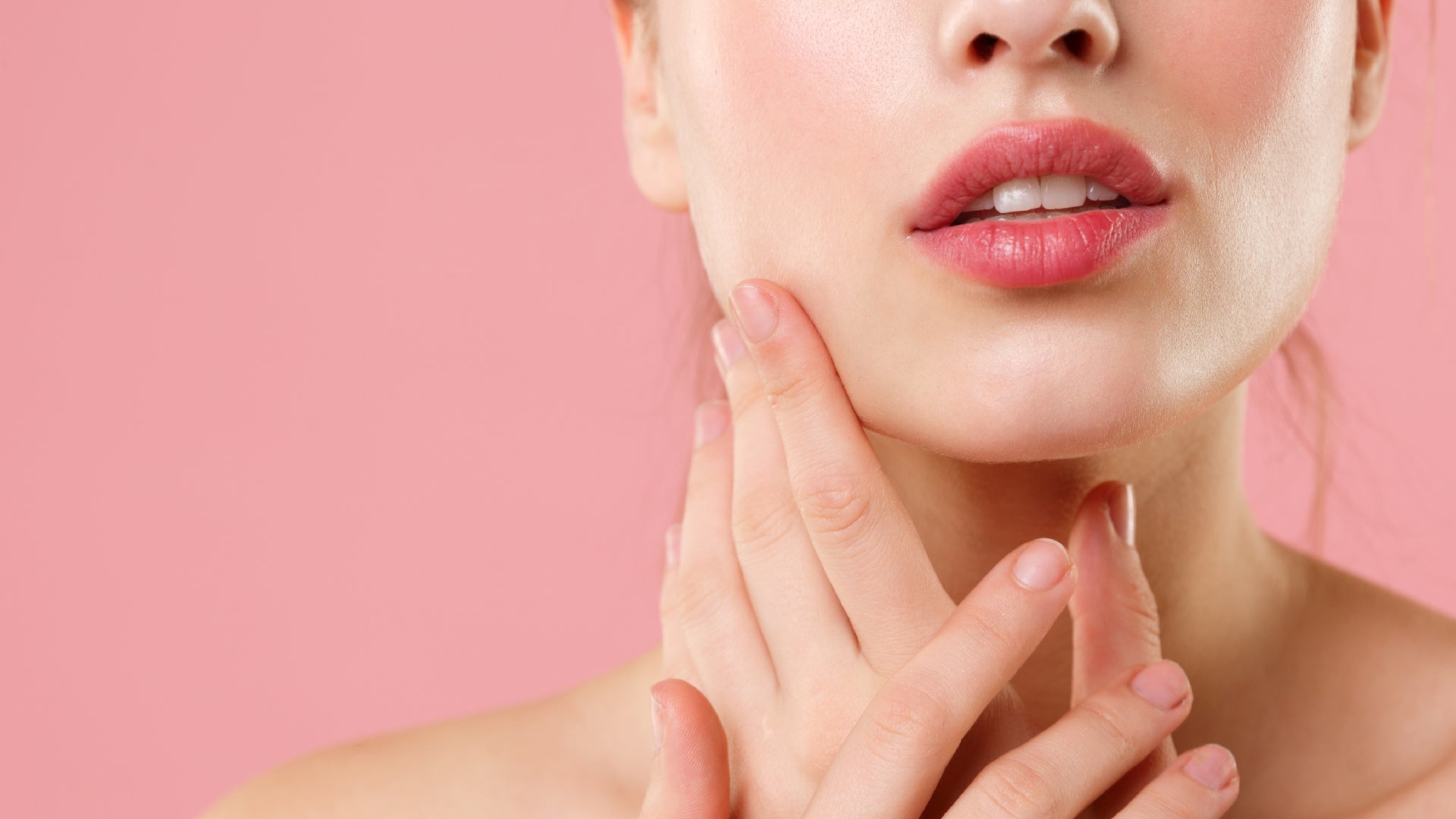
The Wonders Of Tea Tree Oil For Acne-Prone Skin
Derms swear by it and we love it. So, what’s the deal with tea tree oil, and should you be incorporating it into your acne-fighting skincare routine? Easy answer: yes.
Breakouts are annoying beasts. Whether your chin flares up on a monthly basis (thanks, hormones) or you simply cannot control your oily T-zone (enough already, overactive sebaceous glands), zits are the worst. And even though you know pimples don’t really matter in the grand scheme of things, given the choice between having acne-prone skin or not is a total no-brainer.
One of the most frustrating parts, however, is finding topical skincare that works; something that helps reduce sebum without drying out your skin, accelerates healing and, heck, even minimizes the darn breakouts in the first place. Well, your go-tos might be salicylic acid or benzoyl peroxide (BPO), but there’s actually another ingredient that’s just as effective: tea tree oil. And here’s the kicker, it’s not only as natural as they come, but it also comes with fewer side effects than BPO.
Here's everything you need to know about tea tree oil…
What Is Tea Tree Oil?
Also known as melaleuca oil (who knew?), tea tree oil is an essential oil that's steam-distilled from the leaves of the tea (melaleuca alternifolia) tree. Tea trees are native to the southeast coast of Australia and their oil has been used for centuries for its antibacterial and anti-inflammatory properties. Not only did native Aborigines apply it topically to heal the skin, but it’s said they also inhaled it to treat sore throats and coughs.
How Does Tea Tree Oil Work?
As an acne-fighting ingredient, tea tree oil works in two ways. Firstly, it contains awesome antimicrobial properties which help kill certain unwanted acne-causing bacteria on the surface of the skin. This is super important when trying to control breakouts of all types – blackheads, whiteheads, angry zits, the lot. Sound familiar? That’s because benzoyl peroxide works in a very similar way, albeit slightly quicker but often with more irritating side effects.
Secondly, tea tree oil is anti-inflammatory, so it's a real winner for reducing facial redness and calming your skin while it simultaneously works on killing bacteria. Take that, BPO!
An important sidenote to remember, however, is that tea tree oil should never, ever be swallowed. It can cause all manner of nasty and often serious symptoms including confusion, breathing problems and worse. Just because it’s natural and comes from a plant, this doesn’t mean it’s safe for consumption. Save it for your skin, OK?
How To Use Tea Tree Oil For Acne-Prone Skin
1. Don't Underestimate Its Strength
The most important thing to remember is that tea tree oil is pretty darn potent. This is kinda obvious when you give it a sniff (wow!) but you can still buy it in its straight-up form, so if that's your jam, take care, dilute accordingly, and use it very sparingly.
Always patch test your skin first because, like any active ingredient, tea tree oil can cause sensitivities, itching, swelling and other irritations. If you’re good to go after patch testing, we still recommend diluting it slightly, then using it to spot treat your pimples rather than applying it all over your skin as part of your daily routine.
Simply dampen a Q-tip with water, then swab the inside of your oil’s lid to pick up a small amount. Dab this on clean, moisturized pimples before bed to help zap them overnight.
2. Choose The Right Formulation
Most topical essential oils work better (and safer) when mixed with other ingredients. Carrier oils, for example, are perfect for diluting the strength of an essential oil, allowing it to be better tolerated by the skin. However, some oils can clog your pores, so you really need to know what you’re doing.
Not down with cocktailing your skincare ingredients? Then lower your chances of getting it wrong by sticking with a carefully curated tea tree oil product that’s a.) been specially formulated not to cause excessive dryness or irritation and b.) not packed with occlusive oils that’ll make your acne worse.
Our Tea Tree Super Serum + contains an awesome blend of skin-friendly ingredients to help hydrate and balance your skin while allowing the tea tree oil to go about its skin-clearing business. It’s packed with aloe, hyaluronic acid and glycerin to help skin keep calm and draw in moisture, plus niacinamide to fight post-inflammatory hyperpigmentation (dark spots). It also contains two other proven acne-fighting ingredients: salicylic acid and retinol to hit breakouts where they really hurt.
Even though it’s well tolerated by the skin, you should always patch test it before use, and just two or three applications a week may be enough to yield visible results within weeks.
3. Know Whether Tea Tree Oil Is Right For You
When diluted with other skincare ingredients in products like serums, cleansers, toners or moisturizers, tea tree oil is pretty safe for most skin types. If you have eczema or extremely sensitive skin, this means your barrier function isn't working at its best, so you should probably give tea tree oil a wide berth, but other than that, you should be OK.
Of course, there’s always the risk of irritation, redness, dryness and peeling for any skin type, but thankfully this is where that all-important patch test comes into its own. Not sure how to patch test your skincare? No problem, we can help with that right here.












